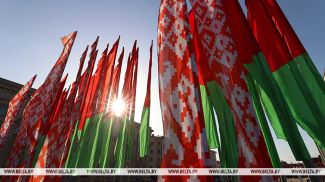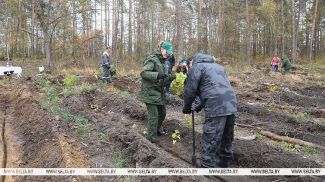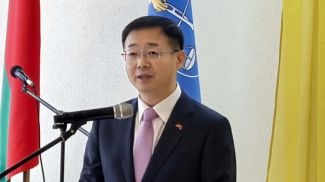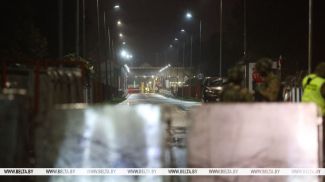MINSK, 4 May (BelTA) – Belarusian and Russian historians have published the book “Russia and Belarus: Essays on common history” that is the first textbook in the large-scale project “Russia and Belarus: Pages of common history”, BelTA learned from the press service of the National Academy of Sciences of Belarus (NASB).
“The 850-page book cites many unique documents that have been published for the first time. The authors used materials from archives of Russia, Belarus, Ukraine, Germany, and Poland. The textbook outlines the views of Russian and Belarusian historians on the causes, character, and events of World War II and the Great Patriotic War and the contribution of the Soviet people to the common Victory. The book analyzes the USSR policy in the post-war years and the role of the Great Patriotic War in culture and art of the Belarusian and Russian nations from the 1940s to the present day,” the press service said.
The book was edited by Doctor of Sciences (History), Corresponding Member of the NASB, Academician Secretary of the NASB Humanities and Arts Department Aleksandr Kovalenya and Doctor of Sciences (History), Corresponding Member of the Russian Academy of Sciences Yefim Pivovar.
The textbook is meant for history teachers in Belarus and Russia and can be of use to teachers of history and other humanities in universities, school and university students, and Belarusians and Russians who live abroad. The essays can be used for teaching history in other CIS member states. According to the authors, the materials used in the textbook will help teachers in extracurricular activities to promote the true knowledge about the war among their students.
The team of Russian and Belarusian historians who are working on the series of textbooks under the title “Russia and Belarus: Pages of Common History” was put together in 2018. The aim to prevent distortion of the history of the Victory in the Great Patriotic War. The project provides for publishing textbooks for secondary, vocational, and higher education institutions to help preserve the collective historical memory of the Belarusian and Russian peoples.













